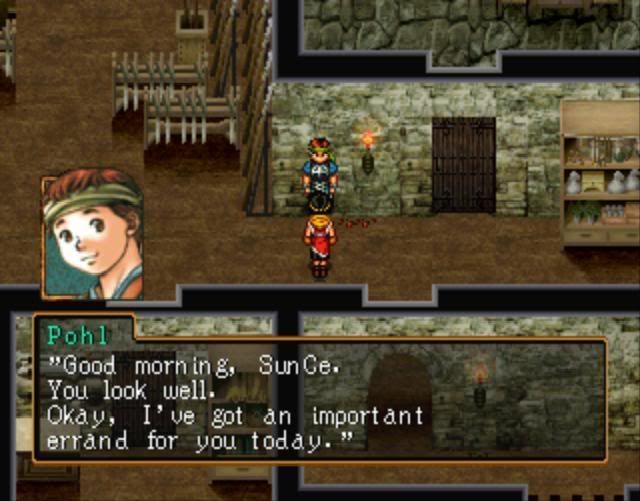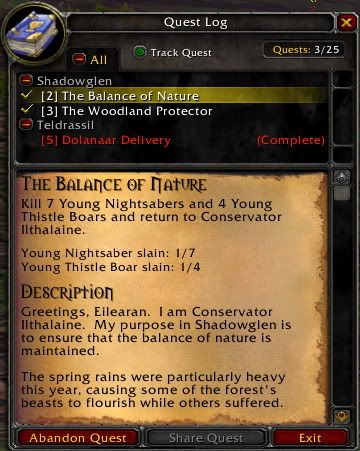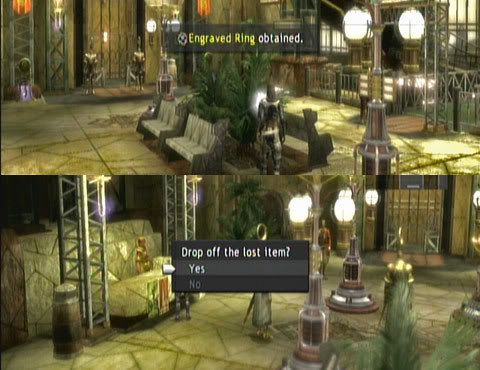RPG Clichés: Fetch Quests
 Suikoden II allowed you to undertake quests to recruit members to join your party.
Suikoden II allowed you to undertake quests to recruit members to join your party.
For anyone who is familiar with the genre, traditional/console RPGs, or role-playing video games are infamous for their trademark gameplay aspects and unspoken “rules” or clichés that many of the games follow. Planned as a recurring column, I hope to provide background information for those unfamiliar with the genre and give some insight and commentary on their role in the RPG genre as a whole. The third entry in the column will cover a feature seen in many different RPGs of all kinds: fetch quests.
For those unfamiliar with the term, fetch quests usually involve tedious tasks requested by non-player characters to retrieve special items, kill specified creatures, find other NPCs, or other mundane chores. They usually force the player to fight through a “dungeon” or any locale filled with enemies in order to accomplish any given goal. In console RPGs, these missions often take place in-between major story events and are often required in order to progress through the game, gain important story information, and continue the storyline. While console-style RPGs tend to integrate these quests into the storyline and use them to further the plot or flesh out characters and the game world, western RPGs and Massively Multiplayer Online RPGs use these quests as a more blatant means of gaining experience, equipment, currency, and leveling up your character. This fundamental difference is one aspect that divides gamers’ opinions on the two main RPG genres. Much like the gameplay vs. story argument mentioned in my stock characters entry, this also fuels the debate. Some prefer to be immersed in the storyline and experience the pre-defined characters and scripted adventures, while others argue that it doesn’t truly represent role-playing. Computer-style RPGs such as Fable and World of Warcraft follow a less linear experience usually at the expense of a more detailed and crafted story, instead allowing the player freedom and customization. Given the more open-ended nature of western RPGs, fetch quests are usually at the leisure of the player but are more straightforward and less exciting. Console RPGs try to make them more interesting by including story and personality to these quests, adding variety to the battles, cut scenes, and exploration. Both include mandatory and optional fetch quests, but console RPGs are known more for the mandatory kind.
This fundamental difference is one aspect that divides gamers’ opinions on the two main RPG genres. Much like the gameplay vs. story argument mentioned in my stock characters entry, this also fuels the debate. Some prefer to be immersed in the storyline and experience the pre-defined characters and scripted adventures, while others argue that it doesn’t truly represent role-playing. Computer-style RPGs such as Fable and World of Warcraft follow a less linear experience usually at the expense of a more detailed and crafted story, instead allowing the player freedom and customization. Given the more open-ended nature of western RPGs, fetch quests are usually at the leisure of the player but are more straightforward and less exciting. Console RPGs try to make them more interesting by including story and personality to these quests, adding variety to the battles, cut scenes, and exploration. Both include mandatory and optional fetch quests, but console RPGs are known more for the mandatory kind. The Xbox 360 release Lost Odyssey includes classic RPG elements and is developed by Mistwalker and Final Fantasy creator, Hironobu Sakuguchi.
The Xbox 360 release Lost Odyssey includes classic RPG elements and is developed by Mistwalker and Final Fantasy creator, Hironobu Sakuguchi.
These are such a staple in console RPGs, it is difficult to provide a list of games that do not have them in one form or another. It could be seen as a primary gameplay feature, as fetch quests often provide opportunities to explore various dungeons, learn more about characters, and expand the story. There are often rewards for completing these quests, but they are often apart of the regular flow of the game or are non-essential in completion. This is opposite of western-style RPGs, with fetch quests’ main objective is to improve the character and for more ‘stat-tracking’ purposes. Traditional RPGs have been accused of using them to artificially lengthen the game or using them as poor plot devices. They have been generally accepted as part of the game, usually forgiven if used sparingly. I tend to agree, as it gives excuse to take time and enjoy the game rather than rush through to finish the story. But as gamers’ time becomes more valuable, I think they will be used and integrated in more innovative ways. Much like random encounters, tolerance will vary from person-to-person. I hope that pointless and more time-consuming tasks such as traversing the world to complete something simple will be discarded for ways to further immerse the player into the game.
I think gameplay elements such as fetch quests will gradually become influenced more by western RPG ideals and action-oriented gameplay. Since they are so mundane in nature, providing an exciting experience and good rewards will be nice ideas to curb the more negative aspects of them. The definition of traditional RPGs are slowly changing, and I think this is just one way they are evolving.

